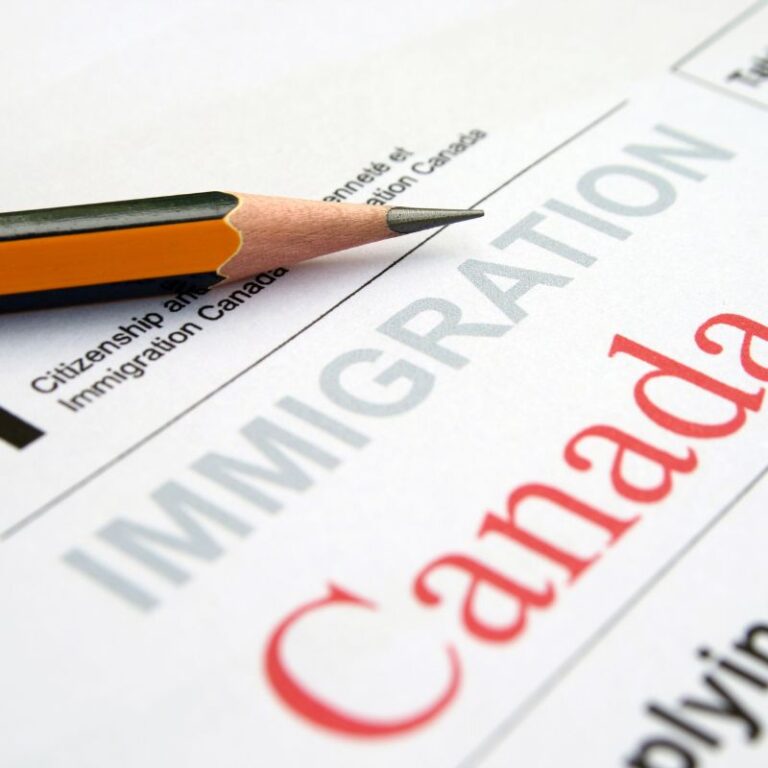The concept of evidence in Canadian law and its importance for prospective immigrants to Canada

Preparing an application to immigrate to Canada requires a thorough understanding of the types and categories of evidence required. This evidence plays a decisive role in the assessment of the application by Canadian immigration authorities. It must convincingly demonstrate that the applicant meets all the required criteria, whether in terms of identity, language skills, work experience, financial situation or other relevant aspects. Each category of evidence contributes to the credibility of the application.
What's a proof?
Evidence is any element provided within a legal framework to support or refute an allegation. In law, evidence can take a variety of forms: written documents, testimonials, recordings, physical evidence, etc. Its purpose is to convince the decision-maker (judge, court, administrative authority) of the truth of an assertion. Its purpose is to convince the decision-maker (judge, court, administrative authority) of the truth of an assertion.
The concept of evidence in Canadian law
Canadian law, influenced by common law and civil law, recognizes various types of evidence and establishes strict rules for their admissibility and evaluation. These rules are designed to ensure that evidence is presented and examined in a fair and consistent manner.
Standards of proof
Standards of proof vary according to the legal context:
- Suspicion A simple suspicion, often insufficient for legal action.
- Reasonable grounds for belief frequently used in criminal cases for arrests or searches.
- Preponderance of probabilities the standard in civil matters, including immigration, where it must be shown that the assertion is more likely true than false.
- Beyond all reasonable doubt the highest standard, applied mainly in criminal cases.
Burden of proof
Burden of proof refers to the responsibility of proving a claim. In Canadian law, the onus is generally on the person making a claim to prove it. In the immigration context, this burden often rests on the applicant.
The importance of evidence in Canadian immigration applications
In immigration procedures, proof is crucial. Applicants must provide convincing evidence to support their claims, whether for visas, work permits, refugee status, etc. The quality of the evidence presented can determine the success or failure of an application. The quality of the evidence presented can determine the success or failure of an application.
The quality and relevance of immigration evidence
The quality and relevance of evidence are paramount. Documents must be authentic, credible and directly related to the case in question. Insufficient or irrelevant evidence may result in delays or rejection of the application.
Types and categories of proof required for Canadian immigration applications
To successfully apply to immigrate to Canada, it is essential to understand the types and categories of evidence required. This evidence varies according to the type of application and the purpose of immigration. They are used to demonstrate compliance with specific requirements imposed by Canadian authorities. Here are a few examples:
1. Identity and civil status documents
- Passport A valid passport is required for all immigration applications.
- Birth certificate To prove date and place of birth.
- Marriage or divorce certificate In the event of a change in marital status.
2. Proof of language skills
- Language test results (IELTS, TEF Canada, TEFAQ, etc.): Essential to demonstrate proficiency in English or French.
3. Proof of Professional Experience and Education
- Diplomas and transcripts : To prove the level of education.
- Letters of reference from employers To certify work experience, including positions held, duration and responsibilities.
4. Financial evidence
- Bank statements To demonstrate financial ability to support yourself and your family.
- Proof of sufficient funds : Particularly for investor or entrepreneur programs.
5. Proof of Family Links in Canada
- Documents proving the status of family members resident in Canada (citizenship, permanent residence, etc.).
6. Medical and Good Conduct Certificates
- Medical examinations To prove the absence of infectious diseases or health problems that could affect public health or safety.
- Police certificates To certify good conduct and the absence of a criminal record.
7. Other specific documents
- Invitation letters For visitor visas.
- Business plans For aspiring entrepreneurs...
The provision of adequate and relevant evidence is crucial to the immigration process. Each category of evidence is important and contributes to the overall assessment of the application. Applicants must ensure the clarity, authenticity and relevance of each document submitted, as this will strongly influence the decision of Canadian immigration authorities.
Beware of False Evidence in your Canadian Immigration Applications
The integrity and authenticity of evidence provided in applications to immigrate to Canada are essential. It is imperative that applicants are aware of the risks and consequences of submitting false evidence, whether intentionally or inadvertently.
1. The risks of submitting false evidence
- Rejection of request False evidence almost inevitably leads to rejection of the application.
- Legal consequences Providing false information can lead to serious legal consequences, including charges of fraud.
- Territorial ban : Applicants may be barred from entering Canada for an extended period, or even permanently.
2. How to avoid false evidence
- Document verification Make sure all documents submitted are genuine. If in doubt, consult an immigration expert or lawyer.
- Honesty and Transparency Always be honest in your declarations and never try to conceal or alter information.
- Beware of Immigration Consulting Services Beware of immigration consultants or lawyers who promise 100% guaranteed results or suggest the use of falsified documents. Be even more wary of people who offer immigration services without proper authorization. Always identify the people you are dealing with, and ask them for proof that they are authorized by the appropriate Canadian authorities or regulatory body. This will ensure that you receive quality services of the highest standard.
3. Report false evidence
If you discover inconsistencies or indications of fraud in your file, it's important to report them immediately to the appropriate authorities. This can help clarify the situation and prevent possible negative consequences.
Thoroughness and honesty in the preparation of your immigration file are crucial. False evidence not only jeopardizes your application, it can also have serious repercussions on your future in Canada. That's why it's essential to approach the immigration process with integrity and caution, ensuring the veracity and authenticity of every element of your file.
Conclusion
The submission of adequate and compliant evidence is a fundamental aspect of any application to immigrate to Canada. Applicants must pay particular attention to the selection and presentation of their documents, ensuring that they are authentic, clear and relevant. Well-prepared and complete documentation is the key to successfully navigating the immigration process, maximizing the chances of obtaining a favorable response from Canadian authorities. By carefully assembling each piece of evidence, applicants can build a solid and convincing case.






